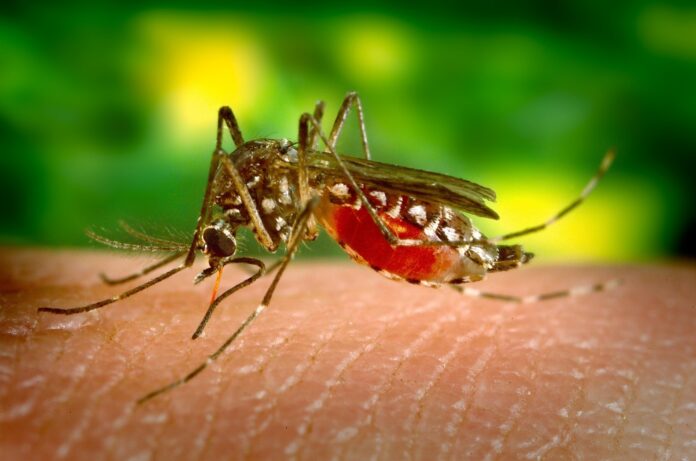Dengue or also called “Deng-Gye,” is an outcome of a specific kind of mosquito bite. A disease that is borne from a mosquito usually occurs in both tropical as well as sub-tropical regions all across the world. Dengue virus is responsible for this disease, followed by Dengue fever symptoms. These symptoms start appearing after 3 to 14 days when the body acquires the infection.
Table of Contents
Dengue fever simplified
Though there are several female mosquito species of Aedes type, causing dengue fever yet the principal one comprises five kinds of viruses. Dengue infection due to any one of the virus types generally immunes the affected person from that particular infection type. But this immunity is for the short-term for the remaining virus types. In case a person is suffering from different kinds of viruses. Subsequently, it can generate some severe and life-threatening complications.
If the dengue fever rash reaches severity, it is termed as Hemorrhagic Fever in medical terms. It causes severe bleeding. There is a sudden blood pressure fall resulting in the death of the patient. All over the world, numerous dengue infection cases occur every year. However, it is quite common in the western Pacific region and Southeast Asia. It is spreading its reach rapidly to the Caribbean and Latin America. Various researches are still being conducted to find a vaccine for this deadly disease. Till the science reaches some working solution, all you can do is to reduce the chances of mosquito habitat in your surroundings, especially in the areas where it is shared.
Dengue Fever Symptoms
Every disease has some symptoms or visible signs to recognize it, but it isn’t the case with a Dengue fever rash. Many people and children especially feel no warnings when it is on a mild fever stage. After a mosquito bit you, the symptoms are visible after 4 to 7 seven days pass.
Though signs of Dengue are incredibly similar to regular fever and its related symptoms, in Dengue, a person has a very high fever up to 104 Degrees accompanying minimum two signs from the following list of dengue fever symptoms:
- Pain in muscles, bones, and joints
- Severe headache
- Vomiting and Nausea
- Paining eyes and swollen glands
- Rashes
A majority of people start recovery in less than a week. In other cases, Dengue fever symptoms worsen, and they can attain a life-threatening stage. It damages blood vessels, and they even begin to leak. Resultantly, several platelets or cells that form clotting start dropping. It furthers the severity of the fever, and thus the doctor’s term it as a Hemorrhagic fever, dengue shock syndrome, or severe Dengue.
Severe symptoms
When the fever reaches severity, it causes life-threatening emergency, and the symptoms include:
- Regular vomiting
- Severe pain in the abdominal area
- Bleeding nose or gums
- Bloody stools, urine, or vomit
- Skin bruises which are the result of bleeding occurring under your skin
- Difficulty in breathing or breathing rapidly
- Clammy or Cold skin
- Feeling extreme fatigue
- Restlessness and irritability
Causes
As it is already mentioned above, that dengue fever is the result of any one of the four dengue virus types. Mosquitoes spread these viruses and thrive in the residing areas of humans. If a person is suffering from dengue fever, rash it bitten by a mosquito, and the same mosquito bit another person, it injects the dengue virus in the bloodstream of that person.
You get immune from the virus that caused dengue infection in you after recovering, but the recovery doesn’t immune you from the rest of the three virus types. Getting the disease again after you recover elevates the chances of turning the fever into Dengue Hemorrhagic fever.
Factors putting you in danger
Many people wonder how they get infected after so much hygiene, cleanliness, and a balanced diet too. But it doesn’t matter how much sanitation you maintain, keep yourself neat and clean, and always have a stable and nutritious food. It is necessary to keep your surroundings clean too. Here are some factors that may put you in a risk of dengue fever development or a severe form of dengue fever:
- Traveling to tropical areas or living there. If you are living or traveling to any of the regions of the subtropical or tropical area, you are vulnerable to get virus infection that originates from a mosquito infected by the dengue virus.
- Regions that are highly risky include Latin America, Southeast Asia, the Caribbean, and the islands of the Western pacific.
- You are prone to get the dengue infection if you have already recovered from the dengue fever previously. In other words, if you again get the infection, there are too many risks to have severe symptoms.
Complications in Dengue fever
Dengue fever at first appears like regular fever, but there are various complications it can generate. The complications brought in by the dengue fever symptoms are:
- Dengue Fever Rash or Shock Syndrome,
- Hemorrhagic Fever
Although, the above complications rarely occur, in case a person is traveling to epidemic areas. It is more common among people living spaces that are Dengue affected and have repeated exposure to the dengue virus. Let’s know more about these complications in detail:
Dengue Fever rash or Shock Syndrome
The shock Syndrome usually occurs in children below the age of ten years. It is a syndrome which is the result of dengue virus affecting children. The symptoms in child for this shock syndrome are hard to identify. Still, the shock happens after two to six days following a sudden collapse, weak pulse, labored breathing bluish appearance everywhere near the mouth, and sweaty and cold extremities.
Besides, constant bleeding inside the skin appears like bruises from outside, and there are blood spots all over the surface. Nose bleeding, gum bleeding, and Melena (stool with blood) and heart inflammation are some other life-threatening dengue fever symptoms. Pneumonia may also occur at this severe state of Shock Syndrome.
The mortality rate ranges from 6-30% in this case, and the majority of deaths happen among children. It is the consequence of the Dengue hemorrhagic fever, and it can have symptoms of the hemorrhagic fever along with the shock symptoms like:
- There is a sudden fall in the patient’s blood pressure, and he has dilated pupils.
- Mouth generally remains dry, and breathing is irregular.
- Patient experiences rapid and weak pulse
- He has a reduced urine flow
- The skin turns clammy and cold
Hemorrhagic Fever
It is a very fatal and deadly complication of dengue fever that furthers the signs of Dengue. It causes liver enlargement and, in most severe cases, shock syndrome, which is already discussed previously.
Though the dengue fever symptoms match with the Hemorrhagic fever, yet there may occur following symptoms too:
- Tiny blood spots all over the patient’s skin
- Large blood patches under the patient’s skin
- Patient facing bleeding in his gums and from nose
- The patient has a weak pulse and cold skin at the same time
- He is sweating a lot
- There is a tenderness in the patient’s body and the abdomen
- He is having appetite lose and feeling discomfort
- The patient is facing difficulty with cough and sore throat
- He is experiencing fatigue all the time.
As the dengue virus is of four distinctive strains, the complications get severe at this stage. Hemorrhagic fever usually happens when the person has had an infection previously with a specific type. After that, he again gets an infection from a virus type different than the previous one.
Children under the age of 12 years and especially females are prone to get Hemorrhagic fever. The central aspect of the dengue treatment is to keep the patent hydrated with the right amount of fluids to reduce the chances of dehydration.
Prevention of Dengue Fever
Currently, a vaccine for dengue fever named Dengyaxia is approved for vaccination of the people between nine to 45 years of age living in areas having a large number of dengue fever incidences. The treatment is done in three parts in 12 months. The approved vaccine prevents the infections approximately half of the time. However, it is approved for children who are older as younger children who get vaccination will be at a higher risk of severe fever. Young age children are hospitalized two years post getting the dengue vaccine.
WHO (World Health Organization) strains on the inefficacy of this vaccine when used alone for a reduction in the dengue fever prevailing in regions where the disease commonly happens. The most crucial part to boost prevention effort is to control the mosquito populations and prevent human exposure.
So far, if you have to travel in a region where Dengue spreads commonly, or you reside in that area, it is best to avoid the disease is to prevent mosquito bites carrying the dengue virus.
Tips to eradicate the risk of dengue fever symptoms
Here are some tips to mitigate the risks of infected mosquito bites, especially if you live or are traveling in an area where Dengue fever usually prevails:
- Always stay in housing that is well-screened or has air conditioning. The mosquitos carrying the viruses are maximum active from morning to night, but they can do their task at night too.
- Always wear full sleeves clothing. Going into mosquito-infested areas, pull on a long-sleeves shirt, shoes and socks, and long pants ensuring that the body is completely covered.
- You can apply Permethrin to clothing, bed netting, shoes, and your camping gear also. In the market, Permethrin made clothes are available, you can go for that alternative. Also, to prevent skin from mosquito bites, apply a mosquito repellent that contains a minimum of 10% DEET (Diethyltoluamide) concentration.
- Keep your surroundings clean. Regularly check your nearby areas for any standing water like in broken pots, automobile tires, etc. Standing water is the birthplace for mosquito habitat.
- To lower the mosquito populations, you can eliminate such habitats as this is where they lay the eggs. Always clean animal dishes, planting containers, and flower vases after a regular period.
- Water tanks and buckets etc. should be covered during the cleaning process.
Diagnosis of dengue fever
The dengue fever symptoms are hard to diagnose due to the confusing signs with other diseases like typhoid, malaria, and Leptospirosis.
To identify the signs of Dengue, the doctor can ask you about the recent travel history and previous medical history. Give him every minute detail and describe well comprising the traveled countries along with the dates. Also, if there was an incident of a mosquito bite, do not forget to mention it.
After a few questionnaires, he may conduct some laboratory tests with your blood sample. It can easily detect the presence of dengue virus, but the blood test reports are generally back too late for helping the straight forward treatment decisions.
Dengue Fever Treatment
To date, there is neither a successful vaccine for dengue prevention, nor there is any specific treatment for existing dengue fever in an individual. While consulting a doctor, he may suggest your intake of plenty of fluids for avoiding dehydration. The dehydration happens due to excessive vomiting and persisting high fever. So, it’s the first mandate to keep you hydrated as much as possible.
If luckily, you are recovering gradually from the dengue fever rash, keep a close eye on the signs and dehydration symptoms. In case you face problems like:
- Decrement in urination
- Few tears or completely tearless eyes
- Dryness around the lips or mouth
- State of Confusion
- Feeling lethargic
- Feeling extreme cold or having excessive sweating
You need to call the doctor right away without any further delay in the event of the above symptoms. Any ignorance or procrastination can have serious consequences.
Final thoughts
Other than that, your doctor can prescribe acetaminophen for reducing fever and alleviate pain. You should avoid pain-killer medicines like ibuprofen, aspirin, etc. as it can enhance the bleeding complications. In case of having worsening dengue fever, you may require:
- Supportive hospital care
- Electrolyte replacement and IV (Intravenous) Fluid
- Monitoring of blood pressure
- Blood transfusion to cope with the blood loss





